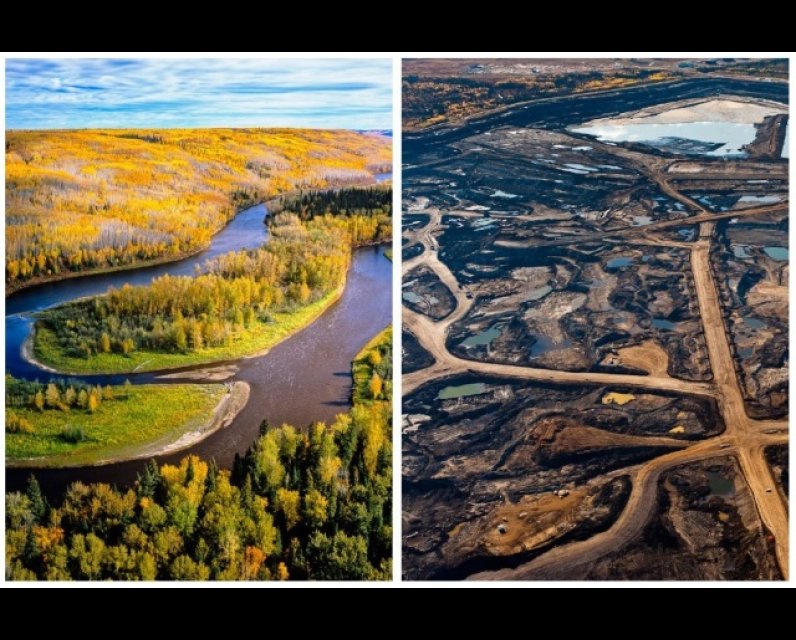Unpublished Opinions
Roland (Rolly) Montpellier is the co-founder and Editor of Below2°C. He’s a climate activist, a climate communicator and a blogger. He’s a member of Climate Reality Canada, 350.Org (Ottawa), Citizens’ Climate Lobby (Canada) and climate ambassador for We Don't Have Time. You can follow him on Facebook, Twitter, Instagram, Linkedin.
Oil Industry CEOs MIA on Climate

I do not recall exactly when I realized that we are destroying our planet. But I know exactly when I knew I had to do something. When my grandchildren were born, I knew. That’s when I became a climate activist.
In spite of raising awareness about global warming, the climate movement of the last few decades has faltered in its attempts to influence world governments to take the needed action to tackle climate change. Global emissions are accelerating and atmospheric CO₂ is at the highest level yet recorded, having substantially passed the critical point where runaway global warming seems almost inevitable.
President Obama’s leadership and climate initiatives are groundbreaking and welcomed by world leaders. China’s decision to reduce carbon emissions from the burning of coal and its emergence as a world competitor in the solar energy market are very promising. But is this enough? The window for action is getting smaller but there are some hopeful signs.
Groundbreaking Studies
Two recent groundbreaking studies – Risky Business and the REMI Report (Regional Economic Models Inc.) have gained broad support from the private sector. Risky Business explores the economic risks of climate change for different regions of the U.S. The REMI Report on “The Economic, Climate, Fiscal, Power and Demographic Impact of a National Fee & Dividend Carbon Tax for the United States”analyzes a powerful market-driven option for emissions reductions that promises impressive national and regional economic benefits.
Social Movements
New social movements to create political will that lead to meaningful public policy formulation represent our most recent hope – the Peoples Climate March in New York, the Great March for Climate Action. Such broad action is supported by organizations such as Citizens’ Climate Lobby and 350.Org.
In the United States, there is a rising tide of interest in the need for climate action and the reduction of carbon emissions. A number of prominent politically conservative figures support the Obama administration in its climate actions.
On a global basis, the World Bank, IMF, IPCC and UN are urging world leaders to lay the groundwork for an agreement on the reduction of CO₂ emissions in Lima in December 2014 leading to a comprehensive and binding global agreement to be ratified at the Paris 2015 Summit in December 2015.
Facing climate reality represents the greatest challenge ever faced by humankind. Climatologists and scientists all over the world are now certain that we must begin the countdown to achieve a low-carbon society by 2050 in order to avert catastrophic global warming.
In Canada
It is clear that the magnitude of the climate change crisis facing humanity demands an all-hands-on-deck strategy. This brings me to the role of the private sector and more specifically the role of the Canadian fossil-fuel industry, and specifically, the role of CEOs.
In Canada, the Harper government has made the rapid development of the Tar Sands its top priority. Little attention is being given to reducing emissions and there is no discussion about pricing carbon. Canada has no national energy plan, no national carbon pricing program and no climate action plan.
You and your CEO colleagues have been noticeably and understandably silent on climate action. Collectively you are an influential and powerful group which could play a key role in convincing the Canadian government to become proactive and aggressive in reducing emissions through carbon pricing mechanisms such as Fee and Dividend. We all have a responsibility and a moral obligation to do our share in protecting the future of our children and grandchildren.
There is a gaping hole in climate leadership at the CEO level in Canada’s petroleum industry. Which CEO will step up to fill that void by taking a progressive stance on the climate threats we face? Who will be the first visionary to step forward and ask our politicians to enact climate policy? It could be you. Such leadership will be widely accepted and perceived as good by the broad public.
You have a choice.



Comments
Be the first to comment